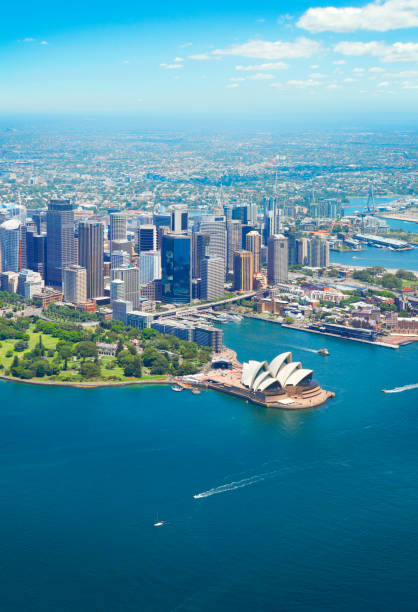Moving to Australia:
Embrace the Extraordinary Down Under
As you embark on the extraordinary journey of relocating to Australia, a land of diverse landscapes, vibrant cities, and a laid-back lifestyle, Universal Relocations stands as your dedicated partner. Our commitment goes beyond the logistics of moving; we are here to orchestrate your seamless transition into a life enriched by the wonders of Australia. From the iconic Sydney Opera House to the natural wonders of the Great Barrier Reef, let us guide you through the enchanting beauty that defines this Southern Hemisphere gem.

- Rough diamonds
- Dogs (dangerous breeds including Dogo Argentino, Fila Brasileiro, Japanese Tosa, American Pit Bull Terrier or Pit Bull Terrier, Perro de Presa Canario or Presa Canario and advertisements referencing these breeds)
- Embryo clones and viable materials, and any related advertising matter advertising these items
- Suicide devices
Sydney's Urban Sophistication
Great Barrier Reef's Underwater Wonderland
Melbourne's Arts and Culture Scene
Uluru's Sacred Red Centre
Great Ocean Road's Coastal Majesty

AUSTRALIA CUSTOMS GUIDELINES FOR USED HOUSEHOLD GOODS AND PERSONAL EFFECTS
DOCUMENTS REQUIRED
- Copy of passport (photo and signature page)
- Completed Australian Customs form B534
- Copy of visa or e-visa approval (non-citizens)
- Detailed inventory / packing list (in English)
- Alcohol inventory, if applicable
- Original bill of lading if no telex release / waybill issued (OBL) / air waybill (AWB)
Moving with Universal Relocations
Embark on your new adventure in Australia with Universal Relocations as your devoted partner. Beyond being a relocation service, we are here to guide you into a life enriched by the wonders of this vast and diverse land Down Under. Contact Us today for a consultation, and let us transform your move into an odyssey filled with culture, warmth, and exciting possibilities. Your Australian adventure begins here!

 800-13-7356
800-13-7356
